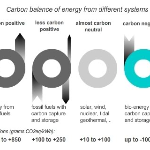
Adaptation: Chemosynthetic Management of the Water/Energy/Nutrient Nexus (WENN) by CO2 Negative/RCP 2.6
Please find below the
Semi-Finalist Evaluation
Judges'' comments
Thank you for your contest entry. We appreciate your willingness to share your ideas and also the time and effort you put into developing a proposal and submitting it to the contest.
We, the Judges, have strongly considered your proposal and found that it contained intriguing elements; however, we have chosen to not advance it to the next round of competition.
We encourage you to keep developing your idea. Transfer your proposal to the Proposal Workspace to re-open it, make edits, add collaborators, and even submit it into a future contest. You can do so by logging into your account, opening your proposal, selecting the Admin tab, and clicking “Move proposal”.
We welcome you to stay involved in the Climate CoLab community: support and comment on proposals that have been named Semi-Finalists and finalists, and even volunteer to join one those teams if you have relevant expertise. During the voting period, you can help select the contest’s Popular Choice Winner. The Climate CoLab will be opening more contests in the coming months, and you are welcome to submit your proposals to those contests as well.
Keep up the great work. We hope that by working together, we all can create solutions that wouldn’t otherwise be possible.
This proposal would benefit greatly from a jargon free description of the basic idea. While there is a wealth of supporting language and figures from outside sources, the core ideas are not clear. The need for carbon negative solutions is clear, the possible funding streams sound convincing, and the benefit to countries if this worked is also clear. But is the idea to form a corp for standards and encourage other countries to carry out the process? In that case, it would seem the main idea is to promote a technique through a standards based approach and to help link practitioners to funding streams.
Or is the proposed corp actually to undertake WENN? It wasn't clear to me after two read throughs.
In either case a larger discussion of negative impacts of WENN and how to avoid them would seem in order and possibly a core function of the corp. how feasible is it really? and how do sorts scale with benefits? These kinds of processes generally have some significant downside. What are these? If none, what is keeping us from doing it already?
The technical components of the proposal are outside my area of expertise, so I am unable to evaluate.
2015 Climate CoLab Judges
No comments have been posted.